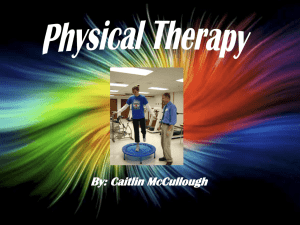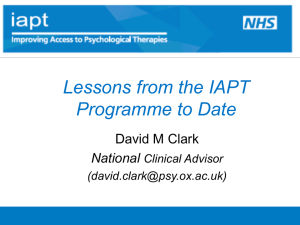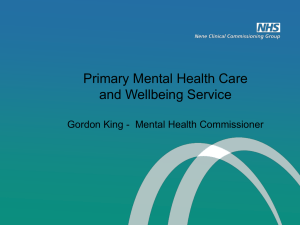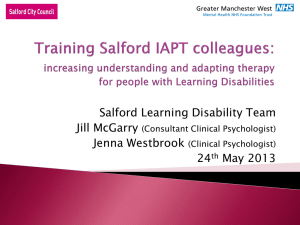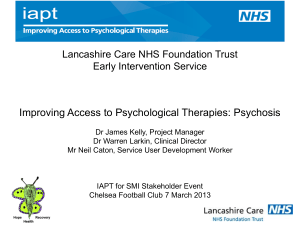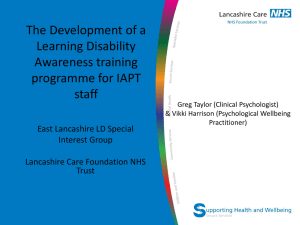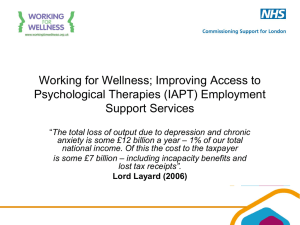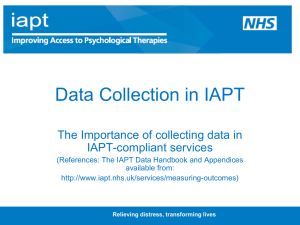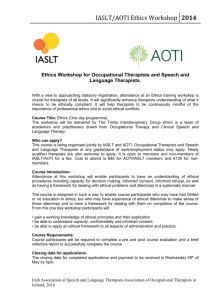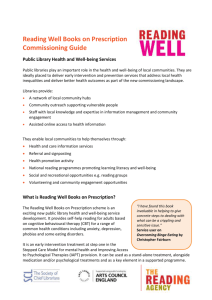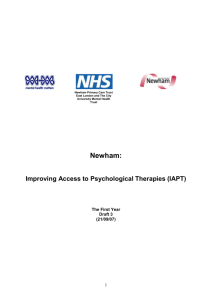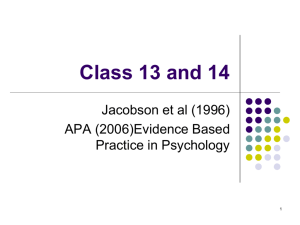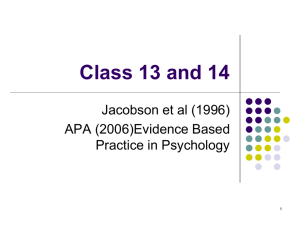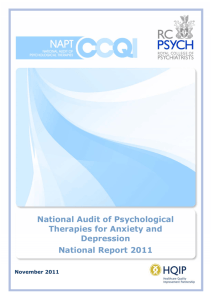IAPT Minimum Quality Standards
advertisement
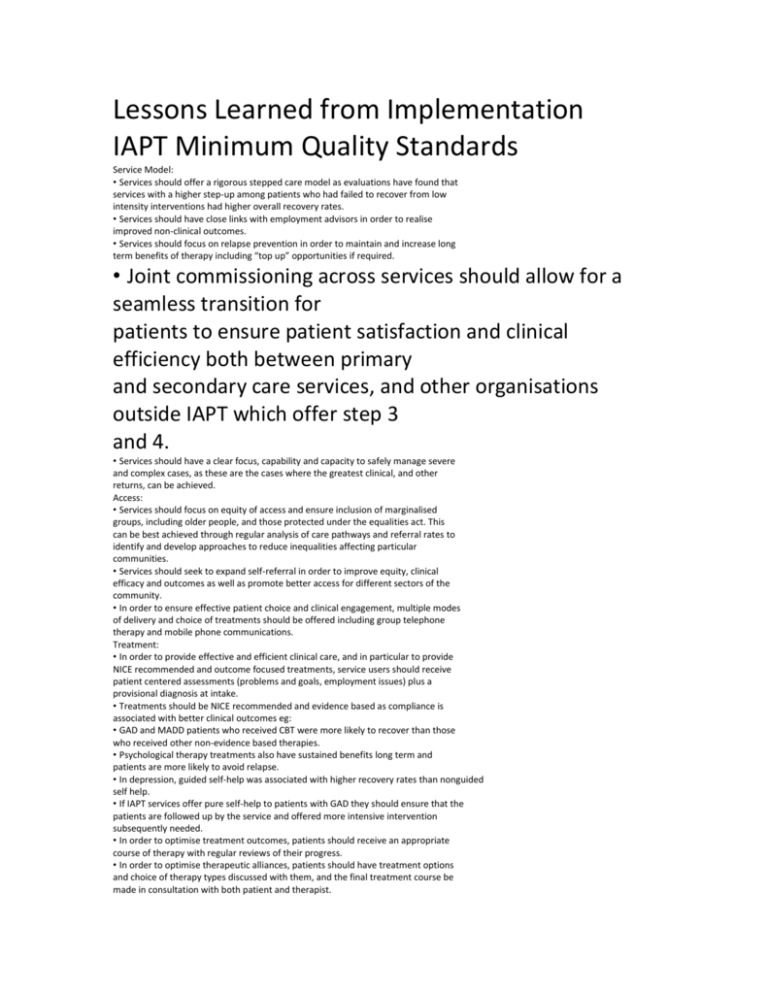
Lessons Learned from Implementation IAPT Minimum Quality Standards Service Model: • Services should offer a rigorous stepped care model as evaluations have found that services with a higher step-up among patients who had failed to recover from low intensity interventions had higher overall recovery rates. • Services should have close links with employment advisors in order to realise improved non-clinical outcomes. • Services should focus on relapse prevention in order to maintain and increase long term benefits of therapy including “top up” opportunities if required. • Joint commissioning across services should allow for a seamless transition for patients to ensure patient satisfaction and clinical efficiency both between primary and secondary care services, and other organisations outside IAPT which offer step 3 and 4. • Services should have a clear focus, capability and capacity to safely manage severe and complex cases, as these are the cases where the greatest clinical, and other returns, can be achieved. Access: • Services should focus on equity of access and ensure inclusion of marginalised groups, including older people, and those protected under the equalities act. This can be best achieved through regular analysis of care pathways and referral rates to identify and develop approaches to reduce inequalities affecting particular communities. • Services should seek to expand self-referral in order to improve equity, clinical efficacy and outcomes as well as promote better access for different sectors of the community. • In order to ensure effective patient choice and clinical engagement, multiple modes of delivery and choice of treatments should be offered including group telephone therapy and mobile phone communications. Treatment: • In order to provide effective and efficient clinical care, and in particular to provide NICE recommended and outcome focused treatments, service users should receive patient centered assessments (problems and goals, employment issues) plus a provisional diagnosis at intake. • Treatments should be NICE recommended and evidence based as compliance is associated with better clinical outcomes eg: • GAD and MADD patients who received CBT were more likely to recover than those who received other non-evidence based therapies. • Psychological therapy treatments also have sustained benefits long term and patients are more likely to avoid relapse. • In depression, guided self-help was associated with higher recovery rates than nonguided self help. • If IAPT services offer pure self-help to patients with GAD they should ensure that the patients are followed up by the service and offered more intensive intervention subsequently needed. • In order to optimise treatment outcomes, patients should receive an appropriate course of therapy with regular reviews of their progress. • In order to optimise therapeutic alliances, patients should have treatment options and choice of therapy types discussed with them, and the final treatment course be made in consultation with both patient and therapist. • Limited but consistent arrangements for follow up, eg. via primary care based “call and recall” systems, should be in place not only to continuously evaluate service and practitioner performance but also to support relapse prevention. Outcomes Data Collection: • In order to continuously evaluate the effective provision of services, a minimum of 90% data completeness should be achieved; pre and post treatment on all patients. – Clarifying and quantifying benefits of those who didn’t enter treatment and/or didn’t reliably recover (capture data around these & marry up with patient satisfaction). – In order to identify the full range of benefits achieved services should adopt the definition of “reliable recovery” as opposed to “caseness”. • IT systems should enable therapists and service directors to have prompt access to outcomes data and to generate service reports. • Routine outcomes data measurement should be used to improve service quality and accountability. • Ensure IT systems are fully integrated. – To effectively operate a stepped care service it is essential that patients can be tracked through the full stepped care pathway; normally this means having an inter-operable IT system. Staff and Training: • As services with a higher proportion of experienced therapists have higher overall recovery rates, staff should be suitably trained and accredited by BABCP or other appropriate accreditation organisations. • Staff should use IAPT accredited training providers. • Therapists (trained and trainees) should receive appropriate outcomes informed regular supervision in order to maintain standards, problem solve and identify training and other issues. • Services should provide education and training of staff and in particular support succession planning. • Staff turnover should be monitored eg via “exit interviews” in order to ensure that any negative reasons are identified and addressed. • In order to support equitable access and other factors services should aim to develop a balanced workforce in relation to local needs i.e. in terms of not only skill mix but also clinical background, gender, ethnicity etc. • Services should have therapists trained to deliver both high intensity and low intensity treatments to ensure patients with more complex presentations of anxiety and depression are not excluded. • Experienced therapists should maintain contact with some patients who only have mild and moderate symptoms to ensure their skill set is maintaine [T1]MCS
